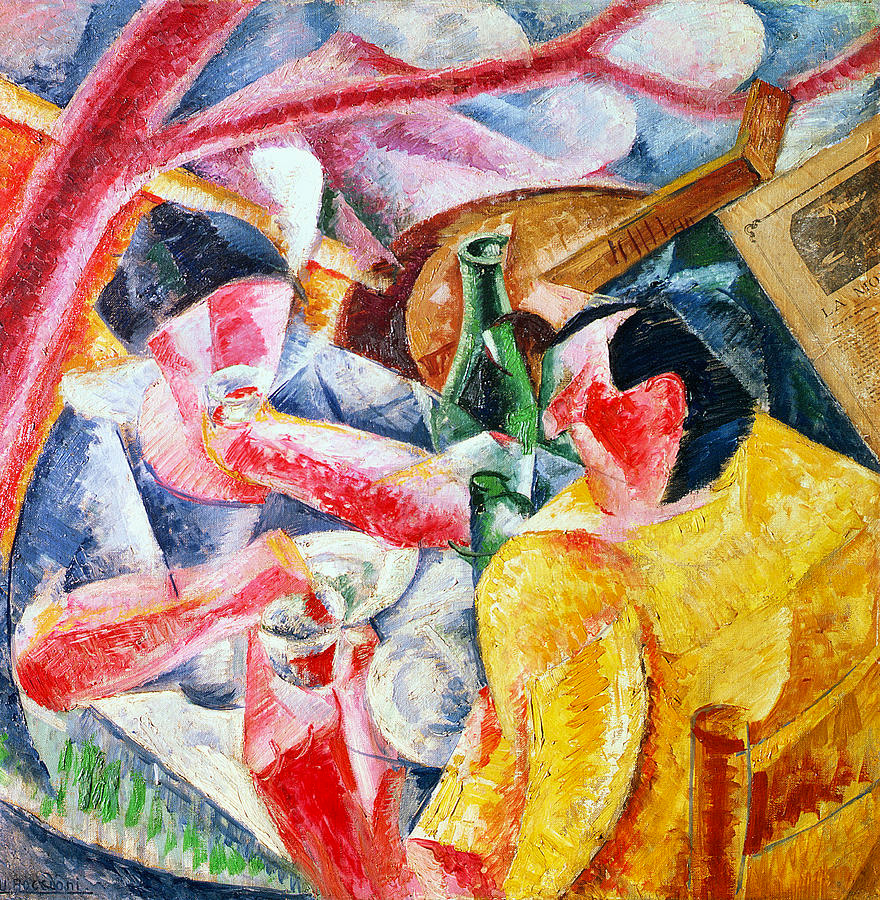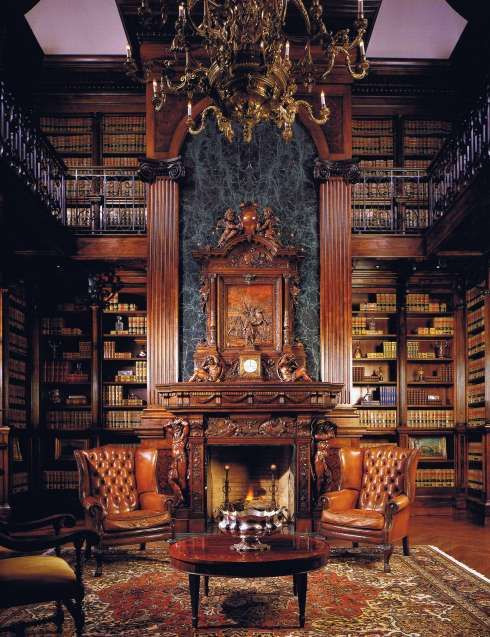 Under the Pergola at Naples, Umberto Boccioni
Under the Pergola at Naples, Umberto Boccioni
This is part of a series of posts outlining my ideas for a Futurist Gentleperson’s Club. See Part I and Part II for background.
I am trying to promote the idea of a private club for futurists in the Bay Area, and I have gotten a lot of criticism for my choice of aesthetics and narrative framing. I don’t want to get too sidetracked by these things, so in this post I want to describe what I envision as a typical “day in the life” of the Futurist Gentleperson’s Club.
We are considering a range of spaces, from a single large meeting room to a house, but, for the purpose of this article, I assume that we will at least have a suite with some sort of food service capacity. Ideally, we would have a set of suites and some outdoor space. Many private clubs even have bedrooms, where members can sleep after staying too late, or have guests stay who are visiting from out of town. We have yet to see what we can fund with our subscriptions.
Morning
I’m not personally a morning person, but perhaps others would want to do “Breakfast at the Club.” If enough people RSVP, then a catered breakfast would be provided in the dining room. Each breakfast might have a dedicated topic such as, “What does sustainable development of the Global South look like?” Others might prefer to use one of the available rooms to do a group meditation or something. This is the Bay Area, after all.
From mid-morning until lunch time, the club could be an excellent coworking space for members who are self-employed. Why go to some random coffeeshop when you can code side by side with fellow futurists? The casual conversation is bound to be easier. Having a shared interest should always provide a conversation starter for meeting new people. Coworking spaces are very popular now, and they are not cheap. Working at the club might be an excellent alternative.
Afternoon
The club will provide lunch whenever enough people RSVP, until we get big enough to provide regular meal service. I also like the idea of “learning lunches,” scheduled once a week, during which a speaker talks on a specific futurist topic that they are an expert on. Maybe we can get some longevity or AI researchers to discuss their latest work. Meeting and learning over food and drink should be the primary function of this club.
After lunch, coworking would continue. The club can also serve as a venue for other groups who are aligned with futurists, such as a science fiction book club or an AI Meetup. Hosting regular events, which welcome the public, will provide a good way to recruit new members and bring in fresh ideas. I would certainly like to hold my East Bay Futurist Meetups in such a club. Coffeeshops are loud, have terrible food, and generally terrible decor. Proper interior design and food service would make this a wonderful venue.
Evening
Evening dinner and drinks at the club are a time honored tradition that we futurists would be sorely amiss to neglect. I’m sure we can find an excellent chef to plan and prepare outstanding and healthy meals tuned to the odd tastes of futurists, which I expect swerve strongly towards paleo or some such direction. Again, a weekly dinner event could serve as an anchor to bring people in.
After dinner, the club would host weekly evening salons with speakers or perhaps debates. Possible topics might include:
- Providing food, water, and energy to a growing world
- A review of the simulation argument, for and against
- Bostrom’s (Eliezer’s) Superintelligence
- Consciousness uploading for fun and profit
- AI safety: opportunity costs or human extinction?
- Longevity research: pros and cons
- Futurist ethics: human genome hacking, wireheading, and ad blocking augmented reality
- Automated unemployment: the end of the Luddite Fallacy or more unsubstantiated hand wringing?
- You get the picture.
And, on nights when nothing is planned, I hope that we can encourage a lively nightlife of unstructured drinking, arguing, and games.
Unstructured Time
The greatest value of a club is to have a place to go when you have nothing else planned, just a place where you will be welcome. David Schneider-Joseph sees parallels between this and a Sudbury school. Just show up and let’s learn together. Bert compared it to a punk house, where people are free drop in and be themselves. (Though I will insist that it be kept cleaner than a punk house, of course.) But a persistent place, always open and welcoming, will be what sets this apart from all of the various Meetups and salons that we might attend. This is a home away from home for futurists.
For these unstructured times, I envision a web application that will allow members to RSVP for specific timeslots in which they will be planning to attend the club. These RSVPs will be visible to other members, making it easier for us to reach critical mass or avoid crowded times, as might suit our preferences.
Maybe you will just want to curl up with a good book in the library. We should be able to stock a pretty decent collection of excellent futurist titles, based on member’s suggestions. This is one of the things I think The Battery gets right, by the way, asking members to suggest titles for the library. Maybe you will want to have a drink with your fellow futurists. Or maybe you enjoy playing games like Settlers of Catan or some such. We should have a place for that. Where you can just show up and see what happens and feel perfectly at home.
Can you think of any activities or topics of discussion that I have overlooked? Questions, criticism, and suggestions are welcome, comment below. If you are interested, please take this poll.


